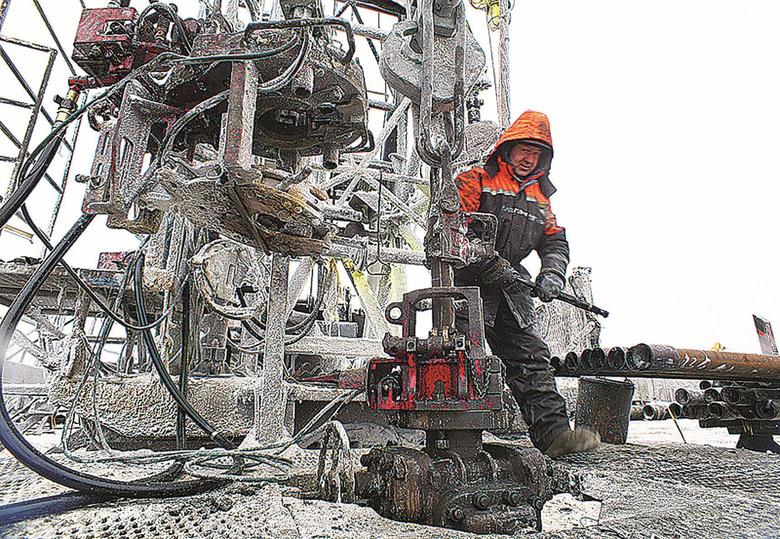
RUSSIAN UPGRADE: $50

Russia is overhauling its approach to crafting the budget next year to safeguard reserves, highlighting the challenges it faces in steering the recession-hit economy through a downturn in oil prices.
Russia used 900 billion rubles ($13 billion) in the first eight months from the Reserve Fund, one of its two sovereign wealth funds, to cover the deficit, Finance Minister Anton Siluanov said Wednesday at a government meeting in Moscow. The non-oil shortfall, the gap excluding revenue from the energy industry, was 11 percent of economic output in the first half, the widest in 10 years, according to Siluanov.
To temper the effects of the unfolding crisis on public finances, the government is suspending the so-called budget rule in 2016, a week after announcing plans to drop three-year fiscal plans in favor of a one-year program. The rule, which went into effect in 2013 and sought to cap public spending based on average long-term oil prices, would have forced Russia to draft its budget based on the price of crude above $80 a barrel.
"At such low oil prices, we must now protect reserves and rely to a greater extent on other sources," Prime Minister Dmitry Medvedev said at the meeting. The budget rule "has played its positive role, allowing to create sovereign wealth funds," which helped "ensure the stability of the financial system, honoring social obligations."
Ruble, Oil
Russia has let the economy adjust to slumping oil prices via the ruble, which it's let drop 46 percent against the dollar in the past 12 months. The currency was little changed at 67.9970 versus the dollar as of 3:19 p.m. in Moscow. Brent crude, used to price Russia's main export blend Urals, slipped 76 cents to $48.76 a barrel on the London-based ICE Futures Europe exchange.
The Finance Ministry has said that it may use as much as 4 trillion rubles in 2015-2018 from the Reserve Fund, which helped Russia weather the crisis in 2008-2009 and became the main source for covering the budget deficit after sanctions over Ukraine limited the country's access to international capital markets. The fund's holdings shrank more than $21 billion in the past year to $71 billion as of Aug. 31, reaching the lowest level since 2012.
Oil Swings
The world's biggest energy exporter is having to contend with fluctuations in the price of oil, which together with gas accounts for about half of budget revenue. Crude is down more than 25 percent from this year's closing peak in May, helping deepen Russia's first recession since 2009 and putting the budget on course for its widest deficit in five years. Siluanov has blamed turbulence on energy and financial markets for forcing the government to shorten its fiscal-planning horizon.
The budget rule may be modified, reinstated or dropped entirely, Economy Minister Alexey Ulyukayev told reporters Tuesday in Paris.
Actions by the government to protect the wealth fund mirror a move by the central bank to shift to a free-floating exchange rate ahead of schedule in November after spending about a fifth of its reserves to prop up the ruble. With President Vladimir Putin saying the country won't "mindlessly burn up" cash to defend its currency, the central bank conducted purchases of foreign currency to rebuild reserves between mid-May and late July before suspending them amid a tumble in the ruble.
Emerging economies are using reserves to reduce their reliance on international organizations and shed the "stigma" that comes with their aid, central bank First Deputy Governor Ksenia Yudaeva said in May.
Budget Outlook
The budget gap, which reached 2.8 percent of economic output in the first seven months, is projected at "a little less" 3 percent this year, according to Siluanov. Oil and gas revenue accounts for 45 percent of the total, Medvedev said.
Russia began drafting three-year budgets eight years ago under then-Finance Minister Alexei Kudrin, who led the push to improve the country's fiscal planning, check spending and divert windfall energy income into rainy-day funds.
Russia will draft next year's budget based on an average oil price of $50 a barrel and doesn't plan to replenish the Reserve Fund next year, Siluanov said Monday. The Finance Ministry will modify the budget rule after 2016, according to Siluanov.
-----
More:
RUSSIA CAN INCREASE TO 14 MLN BBL





